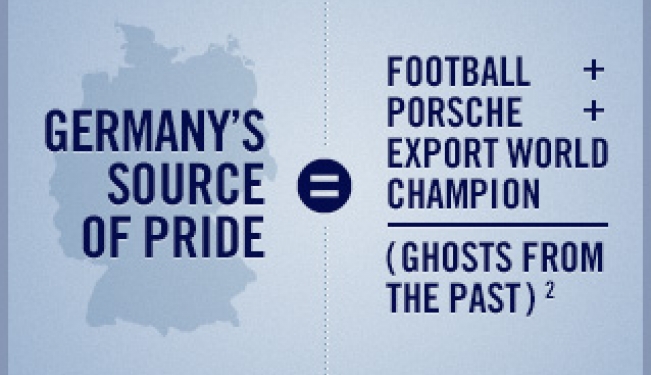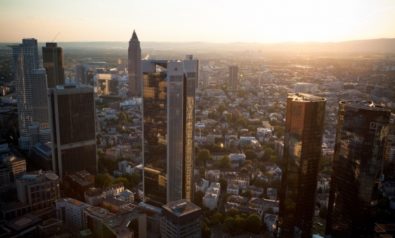History
Germany is a dream and a dream of a country. Looking back at history, the concept of modern Germany is a relatively new one. In ancient times, the Germanic barbarians were among the first people to stand up to the Roman Empire, which eventually settled its border along the river Rhine. For centuries, however, no unification of these tribes occurred. Instead, Germany found itself in a quagmire, existing as a patchwork of city-states and minor principalities, whilst the rest of Europe grew into powerful empires and changed the face of the globe. Even intellectuals only dared to talk of a German cultural nation, and never of a German nation with its own state. Victory over Napoleon’s armies and the ingenious groundwork and achievements of Karl Freiherr vom Stein and Karl August Fürst von Hardenberg led to the rise of Prussia. Today’s Germany found its identity around this northern state at the expense of Austria, the dominant player in the south. In 1866, the legendary Prussian Chancellor Otto von Bismarck united the city states and Prussia in the “small German solution” and led to the inauguration of the German Empire in 1871 after a historic victory over the then-arch-enemy France. A giant with global aspirations suddenly emerged at the heart of Europe and the balance of power in the continent was disturbed. A few decades of growth and prosperity ended in some of the world’s darkest moments, World War I and World War II, wars that led to the end of European domination of the world. After World War II, Germany was not only completely defeated but was also divided into two independent German nations, a communist East and a democratic West. This made Germany the epicenter of the Cold War in the second half of the 20th century. To heal the wounds of history and to protect itself from disastrous Cold War scenarios, Germany teamed up with France to become the engine of Europe and to finally instill a deep friendship between the two nations, which had not existed since Charlemagne in 800. Reunification in 1990 brought Germany back on top of Europe in terms of both inhabitants and economic power. Absorbing East Germany imposed huge costs on Germany and the country went through an economic slowdown. Unified Germany continued its integration into Europe and was the first country to adopt the Euro. It has since emerged as an increasingly powerful player within Europe and even abroad, as it cements its position as the world’s second largest exporter. It has also developed an increased self-confidence and, in the 2006 FIFA world cup, Germans turned out in full force with their flags, a scene that had not been seen before for many decades. In the recent European crisis, Germany’s role was a subject of controversy and we examine Germany’s new place in the world.
Culture
To many foreigners, modern Germany is a faceless and bloodless nation, which lives for work and discipline. However, there are deep cultural layers beneath the surface. Once upon a time, Germany was known as a land of philosophers and poets, such as Goethe and Schiller. People tended to adapt to each other, the friendly despot was the rule rather than an exception, in contrast to its revolutionary French neighbor. Germany became the country of invention and sciences, and fostered religious freedom: Unsurprisingly Huguenots were welcome in Prussia, when they were hunted in France, and Luther started to challenge the mighty Roman church out of Saxony. Today Germany has a female Chancellor, a homosexual Vice-Chancellor, a physically challenged Secretary of the Interior and a Health Minister who is not only Vietnamese but was also born in that country. No wonder, the famous Turkish dish Döner-Kebap is proclaimed to be invented in Berlin…
However, Germany finds it hard to be loved by the people. As Heinrich Heine wrote already in 1843/44: “Denk ich an Deutschland in der Nacht, dann bin ich um den Schlaf gebracht” (thinking of Germany at night, just puts all thought of sleep to flight). There are very few things the German mentality can find some pride in, not its rich history, not its open-mindedness, even though Germans tend to be among the best language learners in Europe after the Scandinavians and the Dutch and not its fabled infrastructure. Germans find pride in sport, particularly football. During the spectacular 2006 and 2010 FIFA World Championships, a young, multicultural, dynamic and flamboyant German team impressed the entire world, and Germans for the first time in post-war history waved their flags and sang their national anthem. Just a few days later, pessimism was back on track. There are not many countries in which citizens like feeling sorry for themselves, dislike their mother tongue and express the wish to emigrate to Canada or Australia.
Critical Issues
Despite long-time low unemployment figures, booming economy and relatively strong social stability, Germany faces some major structural challenges: immigration and identity, unemployment, environment and education. Time will tell whether Germany, nowadays a land of compromises and no tough decisions, will make or break with these challenges.
Facts & Figures
Population: 81 million
GDP: $3.3 trillion approximately
1871: Creation of the German Empire
1914-18: World War I
1939-45: World War II
1949: Creation of the Federal Republic of Germany (West) and the German Democratic Republic (East)
1989: Fall of the Berlin Wall
1990: Reunification
For more than 10 years, Fair Observer has been free, fair and independent. No billionaire owns us, no advertisers control us. We are a reader-supported nonprofit. Unlike many other publications, we keep our content free for readers regardless of where they live or whether they can afford to pay. We have no paywalls and no ads.
In the post-truth era of fake news, echo chambers and filter bubbles, we publish a plurality of perspectives from around the world. Anyone can publish with us, but everyone goes through a rigorous editorial process. So, you get fact-checked, well-reasoned content instead of noise.
We publish 2,500+ voices from 90+ countries. We also conduct education and training programs on subjects ranging from digital media and journalism to writing and critical thinking. This doesn’t come cheap. Servers, editors, trainers and web developers cost money.
Please consider supporting us on a regular basis as a recurring donor or a sustaining member.
Support Fair Observer
We rely on your support for our independence, diversity and quality.
Will you support FO’s journalism?
We rely on your support for our independence, diversity and quality.




